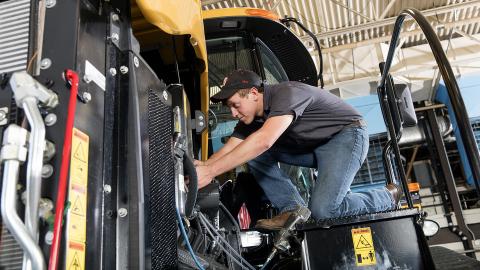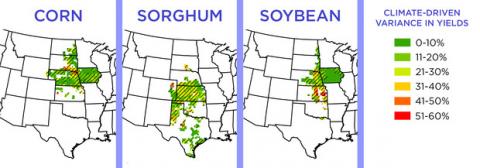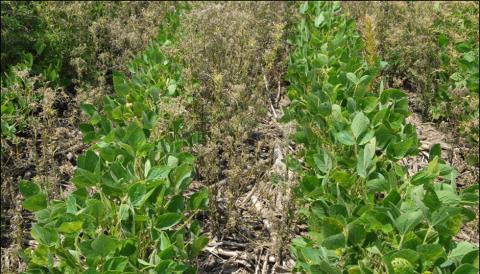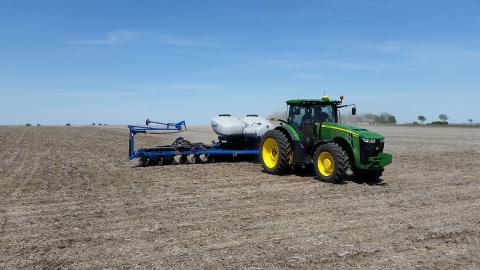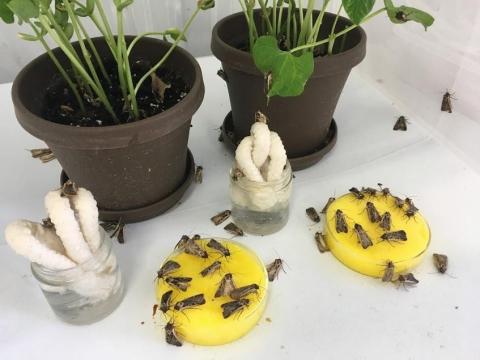Nebraska Research to Advance Tractor Test Methods
March 23, 2018
New research at the University of Nebraska-Lincoln will help bring tractor testing into the modern era by simultaneously assessing the three types of tractor power used to pull implements — power takeoff, hydraulic, and drawbar.
University Research Published in Nature Investigates Climate Effects on Ag Yields
March 22, 2018
While climate change is often described on a global scale, a new University of Nebraska-Lincoln study indicates changing climate trends in the Great Plains between 1968 and 2013 drove about 25% of the collective fluctuations in corn, soybean, and sorghum yields.
Research-Based Resources on Non-Traditional Crop Products
March 15, 2018
If you're considering adding a non-traditional soil amendment or growth stimulant to this year's crop operation, consider checking this compilation of unbiased, university research studies conducted across the north central region to learn more about the product.
Herbicide Options for Managing Glyphosate-resistant Common Ragweed in LibertyLink Soybean
March 1, 2018
Results from a 2017 weed management trial on glyphosate-resistant ragweed indicated two applications were often more efficient and cost effective than either three applications or one application of herbicide.
Learn about On-Farm Precision Ag Research Project Jan. 10
December 21, 2017
Learn what farmers are learning from a university research project using GPS-guided precision ag technology at a Jan. 10 meeting in Grand Island. Growers are currently being sought to participate in the project for 2018.
Could Sub-Saharan Africa be the World's Next Breadbasket? Nebraska Study Says It's Unlikely
November 17, 2017
While there is huge potential for sub-Saharan Africa to increase agricultural productivity, the odds that the region will become the world's next breadbasket are low, according to a new study from the University of Nebraska-Lincoln. While the area receives more rain than the world's other breadbaskets, its shallower and "older" soils may not serve as good water reservoirs during periods of little rainfall.
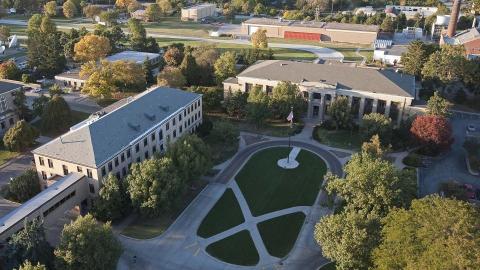
Engineering Research Focusing on Next Generation of Ag Technologies
November 2, 2017
The next generation of agricultural technologies and systems is the focus of three USDA-funded research projects in the Biological Systems Engineering Department at the University of Nebraska–Lincoln. The projects were announced Oct. 17 by the National Institute of Food and Agriculture’s (NIFA) Agriculture and Food Research Initiative (AFRI).
Establishing a Western Bean Cutworm Colony in the Laboratory
October 4, 2017
The western bean cutworm is an important pest of corn and dry beans in Nebraska and is a major focus of research at the Agroecosystems Entomology Laboratory at the West Central Research and Extension Center in North Platte. Because WBC has only one generation per year, researchers are now growing their own population to use in laboratory and field studies.
